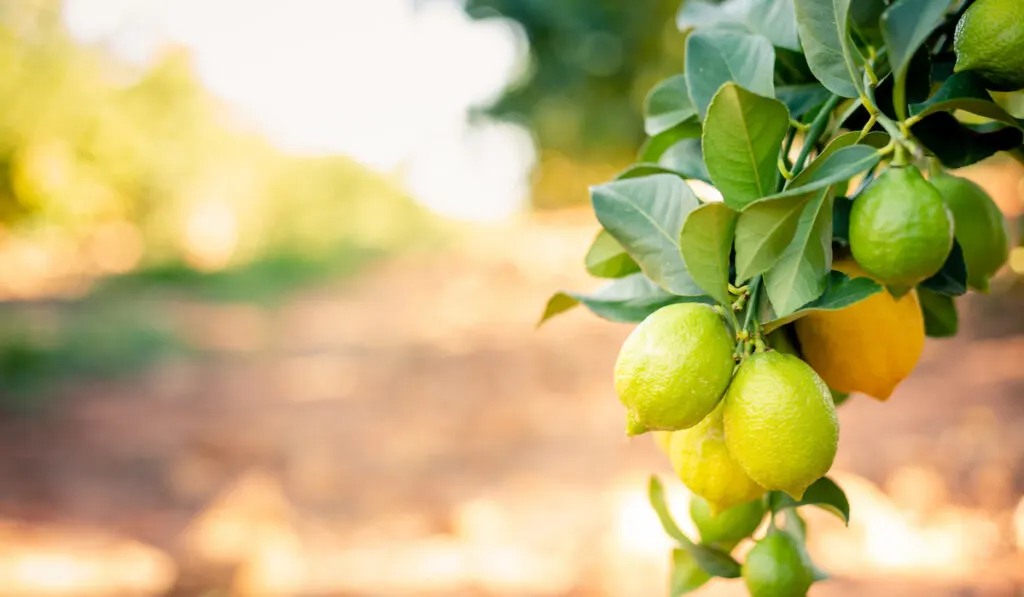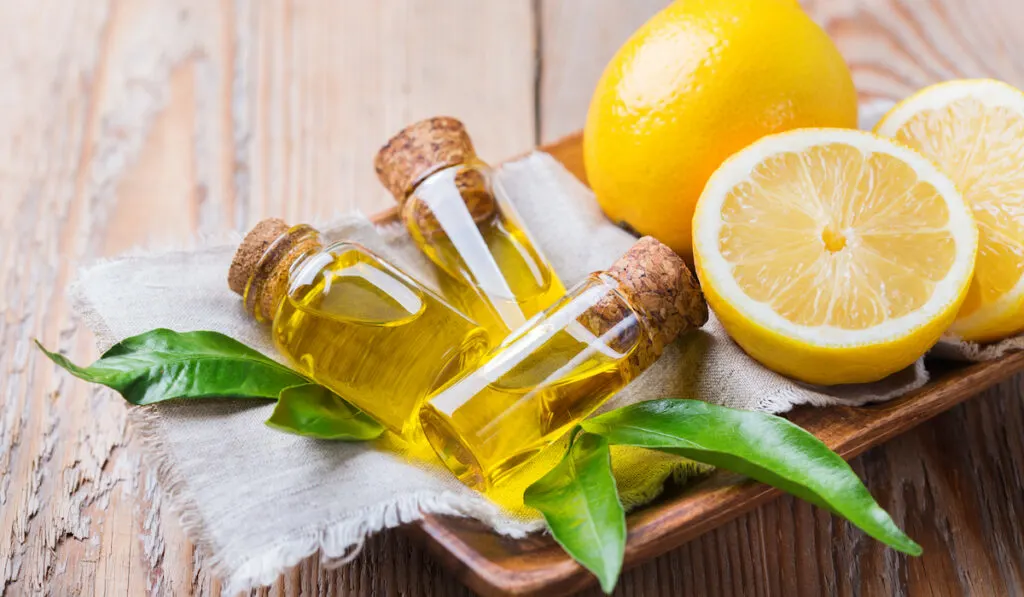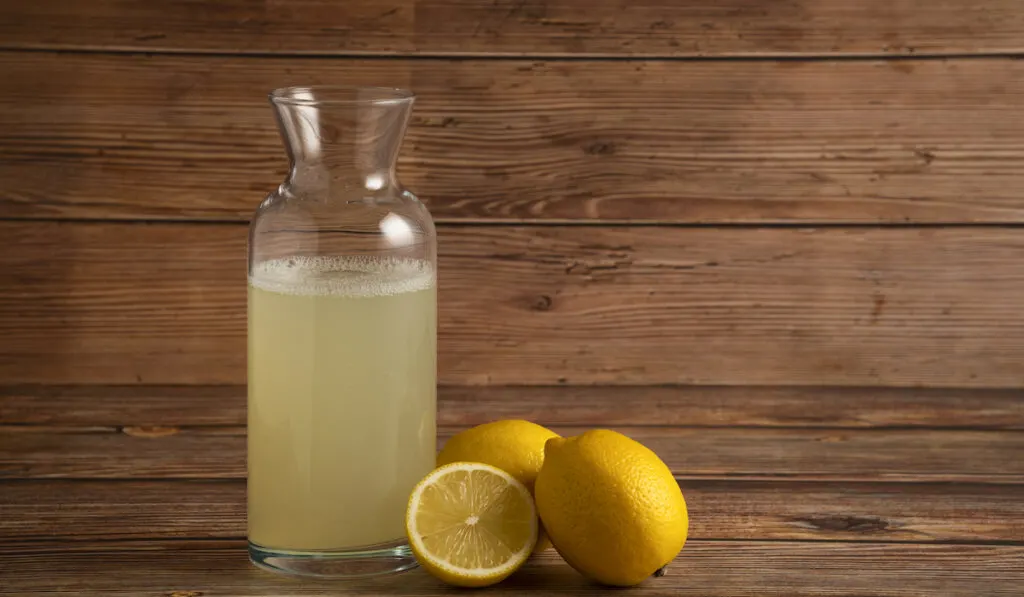How do you know that a food is still safe to consume when it does not have a ‘best before’ or ‘expiration date?’ This usually happens with fruits, such as lemons.
Sometimes, a packaged lemon will have a date when it was packed, but there is no label about its expiration date.
While you may be tempted to buy those bright yellow and aromatic lemons you see on the grocery shelves, improper storage of lemons can result in their premature spoilage.
For this post, we’re going to talk about 10 ways to tell if a lemon is bad, and we’re also going to give you some tips on how to properly store lemons for them to last longer.

Table of Contents
How to Tell If a Lemon is Bad
Fresh Lemons
There are various ways to tell if a fresh lemon is already bad, but most of them include using your senses.
Here are 5 ways to tell if a fresh lemon is bad:
1. Change in color
A good lemon will have a bright yellow color. If you see discoloration, such as white or dark spots, it is an indicator that the lemon has started to go bad.
In addition, brown and dark green colored spots are a clear sign that the lemon will start forming mold.
In some cases, you may also see lemons having bright green color in some of their parts. It is not a sign of a bad lemon, though. It only means that they have been exposed to extreme changes in temperature.
For this reason, it is important that you store lemons in a cool, dry place.
2. Change in texture
A good lemon should look plump and be firm to the touch.
One thing you should keep in mind when it comes to their texture is that the longer you keep lemons, the less firm they will become regardless of where they are stored.
Although it’s common for them to lose their firmness, there are few signs that will help you determine if it’s time to get rid of the lemons.
A very wrinkly lemon should be thrown away since there is little or no moisture left in it, although you may still slice them to check if there’s still some juice left.
Secondly, a lemon with soft spots, wherein the outer skin has started to become slimy, should be discarded.
However, if there’s only a minimal soft spot, you can simply cut it off and use the remaining good parts of the lemon if it still tastes fine.
Lastly, if the lemon has shrunk in size and become too firm to the touch, it means that it has lost all its water, thus should be thrown away.
3. Change in flavor
Sometimes, a lemon will look good on the outside, but keep in mind that the longer you keep it, the less taste it may have.
If the lemon has retained its appearance but you’re still skeptical about using it, try cutting and tasting it. If the lemon has lost its citrusy taste, then it’s up to you whether to use it or throw it away.
However, a less tasty lemon is a sign that it’s not in its best condition anymore.
4. Change in scent
A good lemon should have a fresh, citrusy smell. If it starts to smell rotten or fermented, then it’s time to throw it away.
5. Presence of mold
A good lemon should have a smooth, firm skin. If it starts to develop a soft spot, then it will become moist. If there’s moisture, then mold will follow.
If the lemon starts to feel powdery to the touch, then you need to discard it since it has already formed molds.
Proper storage is the key to lengthening a fresh lemon’s life.
A fresh lemon can be stored for up to 7 days on the kitchen counter. If stored in the pantry, it can last for 14 days.
Meanwhile, if you have a dozen or more lemons and you wish to store them for a long time, keep them in the refrigerator. A lemon that is stored in the refrigerator should last about a month, or even longer.
It is important not to store a fresh lemon in direct sun because it will cause the lemon to lose its moisture.
Freshly-squeezed lemon juice
Freshly squeezed lemon juice should have a tart, citrusy taste, along with a zesty aroma.
Although lemon juice is citric acid, which serves as a natural preservative, it can still form bacteria over time.
In addition, the pathogens from the mold and yeast category can also cause it to spoil. Because of this, it is important that lemon juice is properly stored to lengthen its shelf life.
If lemon juice starts to become darker in color, it is a sign that it has gone bad. In addition, its taste and scent will noticeably change as well.
On the other hand, freshly squeezed lemon juice that is stored at room temperature for more than a day should be discarded.
Lemon Curd
Because of the citric acid content of lemons, lemon curd will have a longer shelf life if stored properly. This is usually done by transferring it to a container and then freezing it.
Once it has defrosted, you can determine if lemon curd is ok. Take a look at its appearance and smell. If you’re still unsure, take a little of it and taste it. It should taste the same as before it was frozen. Otherwise, you should discard it.

Lemon Extract
If you purchased lemon extract at the market, it should have an expiration or ‘best before’ date, therefore making it easier for you to identify when it is not safe to use.
On the other hand, a homemade lemon extract will not have a label or expiration date. To know if a lemon extract is already bad, it will have lost its citrusy flavor and will develop a foul odor. This is the time that you should throw it away.
To prolong lemon extract’s shelf life, it should be stored in a cool, dark place away from the sunlight. Make sure that the container is always closed tightly when it is not used.
If stored properly, lemon extract will last for about 3 to 4 years.
Sliced Lemon
A cut or sliced lemon has a shorter life span as it tends to become dehydrated the longer you store it. In the long run, it will lose all its water and become dry and tough until you cannot use it anymore.
To store sliced lemons, keep them in a sealed container before putting them in the fridge.
They can’t stay fresh for a very long time, and should be used within the next 3 to 4 days.

Bottled Lemon Juice
Bottled lemon juice has gone bad if the bottle starts to leak and bulge out.
If you’re just about to purchase bottled lemon juice, make sure not to buy the one with dents. Also, if it starts to form mold, you should discard it immediately.
Generally, an opened bottled lemon juice that is kept in the fridge should last about six months. An unopened bottled lemon juice can be stored in a cool, dry place for about a year.
9 tips to prolong a lemon’s shelf life
- After purchasing lemons, remove them from the sealed bag and store them in the refrigerator drawer. If you keep the lemons in the bag, it may trap the moisture, thus causing your lemons to spoil faster.
- A sliced lemon can be wrapped in plastic wrap or aluminum foil so that it doesn’t get dehydrated immediately.
- Definitely, a lemon that is placed in a fruit bowl along with other fruits can make your kitchen livelier. However, make sure to use lemons within a few days if you choose to store them at room temperature. Otherwise, they may lose their moisture before you even use them.
- Make sure that you store lemons in a cool, dry place. If they are kept in a container with excess moisture or water, it will cause them to form soft spots, thus they will develop mold quickly.
- If you want to store lemons for a long time, you can freeze them but make sure to put them in an airtight container.
Where can I use lemon that is going bad?
Lemons are versatile fruits that can be used for many purposes. If they start to go bad, you definitely should not consume them. Instead, use them for other purposes, such as:
- Make a DIY cleaner by adding a few drops of lemon juice with some vinegar. Use it to clean your cutting board, blender, countertop, and microwave
- Remove a cloth stain
- Polish your silverware
- Keep them in the fridge to prevent foul odor
- Cut them into slices, dry them, and use for decorations
By following good hygiene and proper storage, lemons will last longer.
Although consuming small amounts of bad lemon will not instantly cause adverse effects, it’s still better to be on the safe side and avoid eating them in the first place.
Resources
- http://www.eatbydate.com/fruits/fresh/how-long-do-lemons-last/
- https://foodsguy.com/how-to-tell-lemon-bad/
- https://livinpaleocuisine.com/how-to-tell-if-a-lemon-is-bad/
- https://www.canitgobad.net/can-lemon-juice-go-bad/
- https://foodsguy.com/freeze-lemon-curd/
- https://www.stilltasty.com/fooditems/index/17528
- https://www.myrecipes.com/how-to/how-to-store-lemons
- https://www.simplyhealthyfamily.org/how-to-tell-if-lemon-juice-is-bad/
- https://www.kitchensanity.com/food/does-lemon-juice-go-bad/
- https://blog.aprons.com/apron/dont-throw-lemon-10-ways-use/
- https://www.self.com/story/ways-to-use-a-lemon
